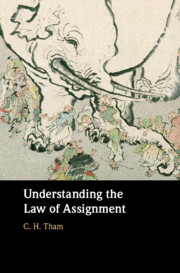15 - Why It Matters
from Part VI - Consequences
Published online by Cambridge University Press: 10 October 2019
Summary
This chapter sets out a number of practical implications from the analysis in the preceding chapters. It explains how, on the model of equitable and statutory assignment set out in this book, anti-assignment clauses may have a limited effect even in connection with equitable assignments. It also explains how the ‘rule’ in Dearle v. Hall may still berelevant when a chose in action has been assigned in accordance with the requirements of Law of Property Act 1925, section 136(1). Third, it shows that the English position that it is still possible to make a parol gift of a presently existing legal chose in action is dictated by the limited operation of the Law of Property Act 1925, section 136(1). Fourth, it explains how it is possible to assign parts of a chose in action, whether such chose be one arising at common law, or even in equity. Fifth, this chapter explains how equitable defences such as laches and ‘clean hands’ may have a wider role to play in connection with equtiable assignments than is usually assumed. Finally, this chapter points out that payments to an assignor of the benefit of a common law debt will not attract restitutionary liability.
Keywords
- Type
- Chapter
- Information
- Understanding the Law of Assignment , pp. 413 - 455Publisher: Cambridge University PressPrint publication year: 2019

